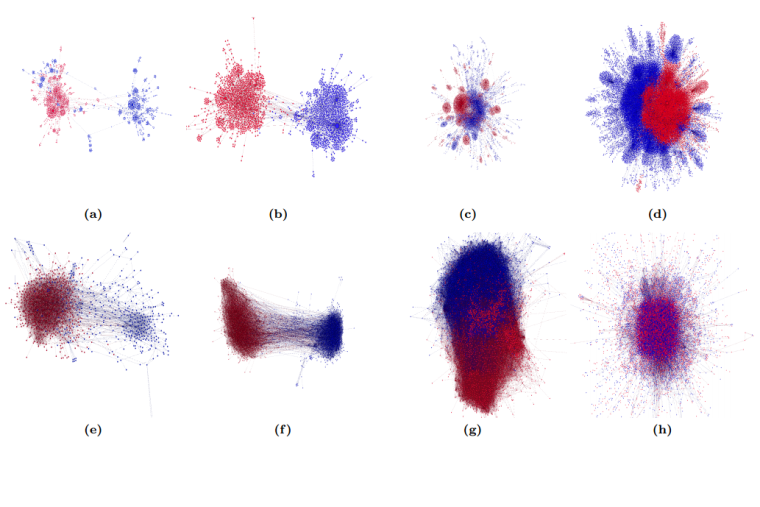Ever wade into a complicated online debate and wonder, if you could step back a bit, what the controversy and its participants would look like from afar? Researchers at Aalto University in Finland did, and they've created a new method of identifying and visualizing divisive topics being discussed online.
Related: Study Shows You Make Your Own Political 'Filter Bubble' on Facebook
The team, led by Kiran Garimella, downloaded sets of data corresponding to various hashtags on Twitter, which let groups of people converse about a single topic — whether they agree or disagree. This data was carefully sorted based on existing relationships between people tweeting, whom they tweeted at or retweeted, and so on. Analysis of the actual contents of tweets, however, proved to be fruitless — perhaps computer algorithms haven't quite got a handle on human sarcasm or the nuances of argument.

The resulting visualizations are striking — and they also indicate the incredible complexity of online communication. The colors indicate what "side" of the controversy a person is on, and the position and distance indicate how closely two accounts are related (by following one another, etc.).
Related: 1 in 10 Twitter accounts is fake, say researchers
The researchers hope, however, that this is the beginning of a way not just to view discussions but to identify and categorize them as they happen, proactively identifying controversial topics or problematic communities.
Garimella et al.'s paper hasn't been published in a journal yet, but can be read online at Arxiv.

